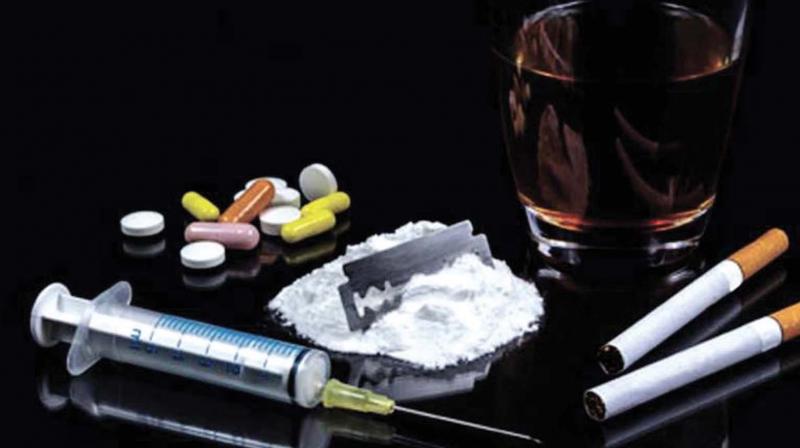Deaddiction
Addiction is the absolute dependency on a particular substance or situation. Substance addiction includes a variety of substances apart from alcohol and drugs. Examples include porn, food, chocolate, nicotine, etc. Situation addiction includes gambling, shopping and sex among others. The problem in our society with addiction is it is treated like a choice than as a major problem faced by an individual. Deaddiction is the process of ridding the individual of his dependence on certain substances or activities
Addiction is the absolute dependency on a particular substance or situation. Substance addiction includes a variety of substances apart from alcohol and drugs. Examples include porn, food, chocolate, nicotine, etc. Situation addiction includes gambling, shopping and sex among others. The problem in our society with addiction is it is treated like a choice than as a major problem faced by an individual. Deaddiction is the process of ridding the individual of his dependence on certain substances or activities.
- Rehabilitation psychology studies the process of de-addiction and helps addicts blend with the normal lifestyle. Rehab centers offer several forms of therapy to reduce substance usage.
- Group therapy is always the go to form of therapeutic technique to deal with cases of addiction owing to the common feeling among users that people who aren’t addicted and do not know what they’re going through. In those cases, it is rather important to have support from a group of people who are exactly where they are.
- Family therapy is also essential to make the individual know how their loved ones feel and also remind them of the unconditional support. Some rehab centers also use the horse therapy (focuses on interaction with horses which facilitates emotional and occupational development in patients) which is rather interesting to witness.
- A feeling of guilt or shame while drinking
- Hiding your drinking problems from your loved ones
- Dependence on alcohol to tackle stress
- Binge drinking tendencies
- Frequent alcohol consumption
- Drinking patterns that negatively impact social functioning
- Alcohol abuse and the consequences it has on your life
- The social pressure surrounding alcoholism, and how to manage it
- The situations you may find yourself in when you feel the need to consume alcohol and how to abstain from doing so
- Times when you are alone at home and feel the need to drink alcohol
- Anxiety and stress, which lead to the consumption of alcohol and how to avoid this
- Anger and frustration from not consuming alcohol and how to manage it

